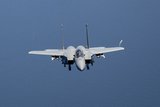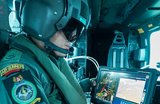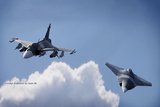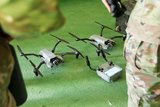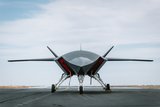Babcock wins €795 million contract to support French Air Force training
The PC-7 MkX is a low-cost military training alternative to the PC-21 aircraft. (Photo: Pilatus)
Babcock France, part of the Babcock International Group, has been awarded a €795 million (US$811 million), 17-year contract by the Direction Générale de l'Armement (DGA) to provide military air support for the French air, space and naval forces.
The contract will see students train on 22 new PC-7 MkX Pilatus aircraft and on 12 training simulators, before specialising as fighter or transport pilots.
It will also, reportedly, create 100 new roles in the Salon-de-Provence and Le Cannet-des-Maures regions which will help to deliver 11,000 flight training hours to around 120 students a year.
Babcock’s chief executive aviation & CEO France, Pierre Basquin, said: “The French Air and Space Force and French Navy play leading roles in national and international security. We are delighted to support our customer with their air-based training requirements, further enabling them to focus on delivering critical military aviation needs.
“This new long-term contract underpins our strong relationship with the French Air and Space Force and places us as its main capability support partner in fighter pilot training programs.”
Babcock France has been working alongside the French Air and Space force to provide training systems on its 26 PC-21 aircraft since 2018 at Cognac-Châteaubernard Air Base.
Related Equipment in Defence Insight
More from Air Warfare
-
![Singapore Airshow 2026: Airbus-RSAF H225M teaming tests point to future scalability]()
Singapore Airshow 2026: Airbus-RSAF H225M teaming tests point to future scalability
The tests between a Republic of Singapore Air Force H225M and Airbus Flexrotor uncrewed aerial system were designed to allow the crew to receive and process real-time data from the UAS while maintaining direct command and control.
-
![Singapore Airshow 2026: Saab eyes “share” in future fighter market, targets 2027 CCA demo flight]()
Singapore Airshow 2026: Saab eyes “share” in future fighter market, targets 2027 CCA demo flight
The Swedish government is expected to make a decision on the next steps of the Future Fighter System Concept programme by 2030, with the current second phase focusing on technology knowledge expansion and demonstration flights.
-
![Singapore Airshow: Red Cat ramps up portfolio development amid “key” APAC opportunities]()
Singapore Airshow: Red Cat ramps up portfolio development amid “key” APAC opportunities
In the wake of its 1,842% year-on-year revenue increase in Q4 2025, Red Cat sees mass opportunities in the Asia-Pacific region as the company eyes an ongoing production increase and market growth.
-
![India confronts widening military helicopter gap as border demands intensify]()
India confronts widening military helicopter gap as border demands intensify
India’s major helicopter programmes are under the spotlight as the country turns to global partners to replace legacy helicopters with growing urgency.
-
![Singapore Airshow 2026: Boeing’s MQ-28A targets key 2028 date as Block II ground tests begin]()
Singapore Airshow 2026: Boeing’s MQ-28A targets key 2028 date as Block II ground tests begin
The MQ-28A Ghost Bat is the most mature CCA platform currently under development, with Boeing looking to accelerate its timelines and development of the aircraft.











